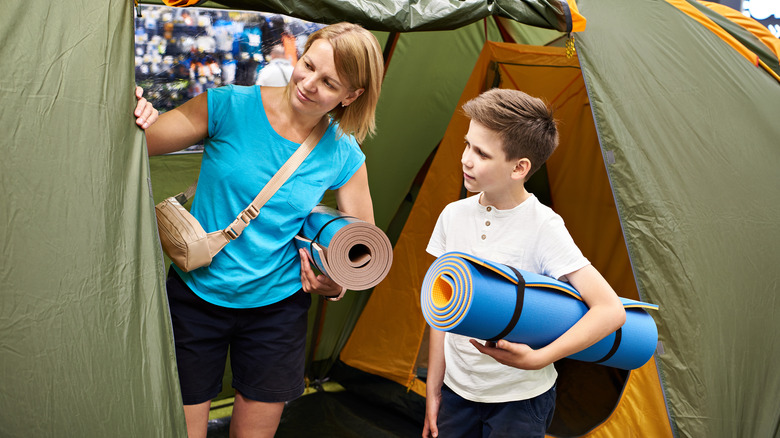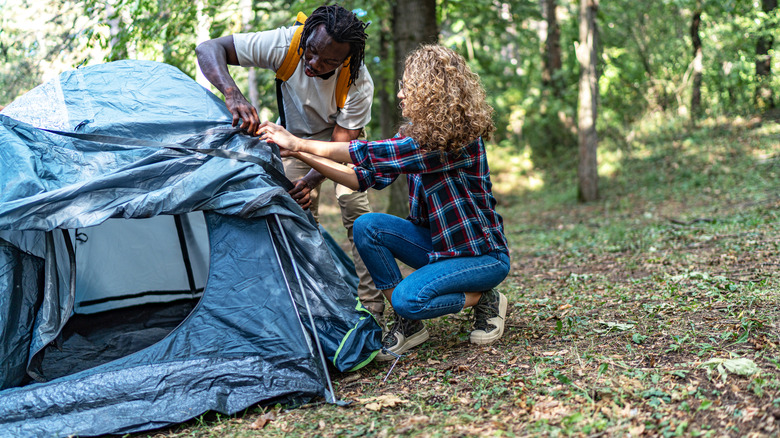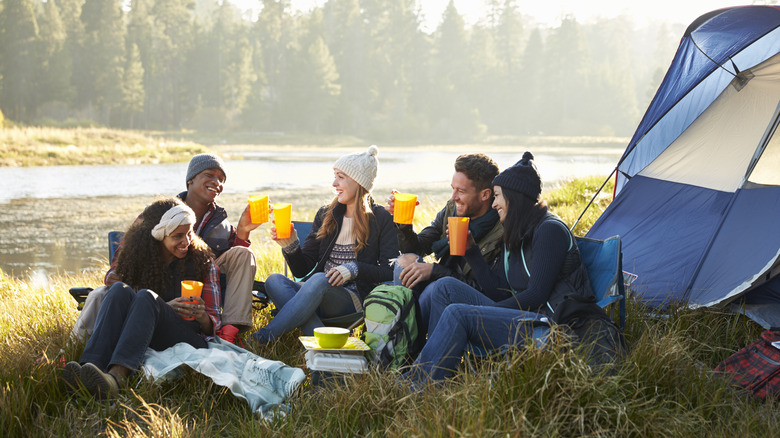Have you ever pondered spending a night in a cozy tent, surrounded by the sounds of nature and twinkling stars? The idea can be exciting, yet sometimes it can also feel overwhelming. Things like setting up a tent correctly, dealing with unpleasant weather, and encountering wildlife or creepy crawlers can be intimidating. However, with a little bit of preparation and information, camping in a tent can be enjoyable and even thrilling.
The good news is that it’s not about being an expert in the outdoors; it’s just about knowing the right information to make your camping experience more comfortable. Factors such as choosing the best campsite for you, selecting essential gear, paying attention to weather patterns, and knowing how to keep yourself safe while temporarily living alongside wildlife are all important aspects to consider. Camping is not a one-size-fits-all experience; tailoring it to your unique preferences can make it more enjoyable. By arming yourself with this knowledge, you can gain confidence and feel empowered to go on your first tent camping adventure.
Essential tips for a safe and comfortable tent camping experience

When planning a tent camping trip, it’s important to find the right campsite for you. Look for information on a campsite’s features and facilities. To avoid interactions with potentially dangerous animals, research the wildlife in the area. If you’re camping in an area known for wildlife encounters, store food securely, familiarize yourself with local guidelines, and plan to keep a safe distance.
Creating a checklist is a simple way to organize your camping essentials. Select gear that suits your comfort level and addresses any specific concerns, like insect repellent, a first aid kit, and a flashlight. If you’re worried about sleeping comfortably while camping, consider bringing a cot to elevate yourself off of the rough ground. This can also help keep you away from crawling critters.
Choose a tent with proper ventilation to minimize condensation, and bring a cozy sleeping bag that suits the expected temperatures. If cooking in the wild worries you, consider prepping some meals at home or bringing ready-to-eat options. Investing in a weather radio adds an extra layer of safety, keeping you informed about changing weather conditions.
Steps for overcoming tent camping jitters

If you’re feeling nervous or unsure about going camping, there are a few other things you can do to help. Practice navigating using your GPS or even a compass in a familiar place, like a local park, before your trip. If you’re not sure how to pitch a tent, practice in your backyard to get more comfortable with it. This can also help you identify any missing gear or potential problems before you leave for your excursion.
Using camping apps can also be helpful. They can help you with things like navigation, weather, and finding good campsites. Bringing comfort items from home can also make your tent feel safer and more relaxed. A cozy blanket or favorite pillow can help decrease your anxiety. This way, you can focus on the fun parts of camping without worrying about discomfort.
Going camping in a tent doesn’t have to be scary. With some helpful tricks, you can turn any challenges into fun learning experiences. You don’t need to be an expert in the outdoors; you just need the right information. By following these simple tips and adding your own personal touches, you’ll be able to enjoy nature’s beauty while feeling comfortable in your cozy tent.

